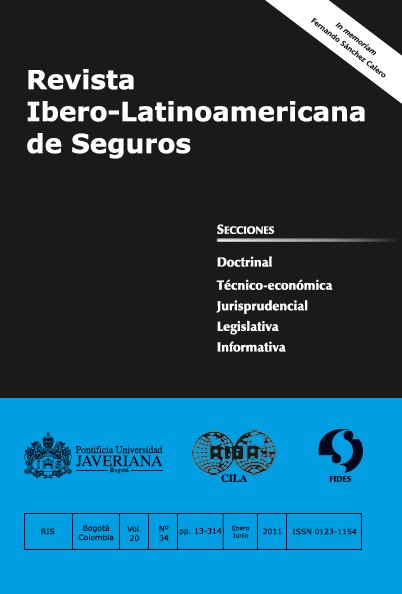Abstract
[This paper deals with] seeing Haiti's terrible earthqueke aftermath that such country as a developing one has suffered as a result of that disaster or the great infrastructure losses taht Chile and New Zealand have suffered notwithstanding thier being the most developed nations of the region and of the word respectively, without mentioning the losses that until this time has been calculated and verified as a result of the past tsunami and earthqueke in Japan.
A question arise on whether Colombia would be really prepared to face catastrophe of this magnitude and the mechanisms and the tools it has to tackle the losses that could be originated as a result, as it is estimated that approximately 90% of the populayion has no earthquake insurance.
As we focus in the Latin American region regarding the recent Chilean earthqueke, a question arises on whether the current reality of Colombia and whether its government or the same population could recover again the losses or whether it is insured, as well as whether insurers, insurance brokers or insured entities, are adecuately covering the property from a catastrophic event.
This journal is registered under a Creative Commons Attribution 4.0 International Public License. Thus, this work may be reproduced, distributed, and publicly shared in digital format, as long as the names of the authors and Pontificia Universidad Javeriana are acknowledged. Others are allowed to quote, adapt, transform, auto-archive, republish, and create based on this material, for any purpose (even commercial ones), provided the authorship is duly acknowledged, a link to the original work is provided, and it is specified if changes have been made. Pontificia Universidad Javeriana does not hold the rights of published works and the authors are solely responsible for the contents of their works; they keep the moral, intellectual, privacy, and publicity rights.
Approving the intervention of the work (review, copy-editing, translation, layout) and the following outreach, are granted through an use license and not through an assignment of rights. This means the journal and Pontificia Universidad Javeriana cannot be held responsible for any ethical malpractice by the authors. As a consequence of the protection granted by the use license, the journal is not required to publish recantations or modify information already published, unless the errata stems from the editorial management process. Publishing contents in this journal does not generate royalties for contributors.


